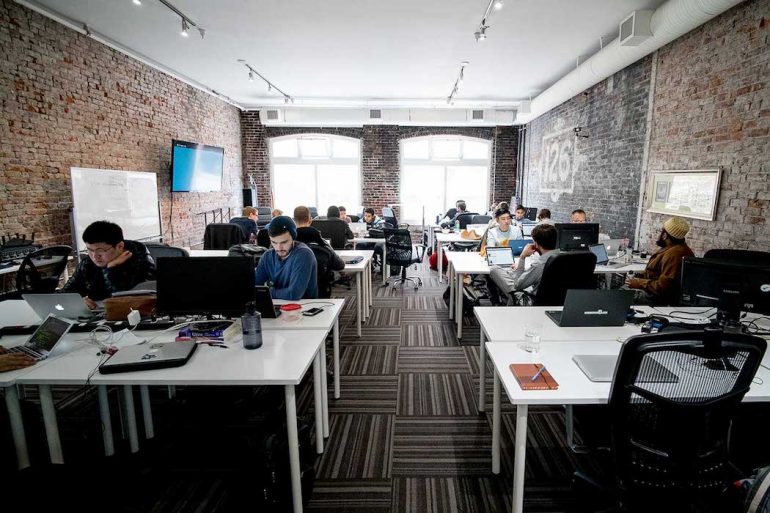Two Canadian coding schools, Lighthouse Labs and Juno College of Technology, are urging the federal government to include private career colleges in the new COVID-19 student relief measures.
“A two-tier and unequal system where only college and university students receive benefits would be unfair and unjust.”
The organizations penned a letter to Prime Minister Justin Trudeau and members of his cabinet this week, urging the government to ensure the new Canada Emergency Student Benefit (CESB) is available to all students in Canada. The letter also asked the government to expand the eligibility for the Student Work Placement Program to include students attending private career colleges.
Private career colleges offer certificate and diploma programs in fields such as business, health services, applied arts, and information technology. Lighthouse Labs and both provide coding and software development education. They have collectively taught over 50,000 Canadians to code and graduated over 3,000 developers into tech jobs.
The proposed CESB is a $9 billion financial support plan for post-secondary and recent graduates. It will provide a flat-rate benefit of $1,250 a month for up to four months between May and August 2020.
In the letter, Lighthouse Labs and Juno said, historically, students of private career colleges have been excluded from government funds benefiting those attending public universities or colleges and are concerned that private career college students will be left out of the current COVID-19 relief measures.
RELATED: Number of Canadian startups significantly impacted by COVID-19 slightly higher than global average
Jeremy Shaki, CEO of Lighthouse Labs, told BetaKit that he applauds the government’s efforts to provide support for students, but added that private career colleges are providing workers with relevant, practical skills, and those students should not be left behind.
“We’re just making sure that while this legislation is still being debated and decided on regarding eligibility, that we make sure that they’re thinking very hard about including private career colleges,” he said.
Shaki added that skills being taught by Lighthouse Labs and Juno are going to be in high demand and will be critical for recovery given that the tech sector is likely in one of the better positions amid and most likely post- COVID-19.
Heather Payne, founder and CEO of Juno, told BetaKit the school has a cohort that graduated two weeks ago, and another one that graduates in about three or four weeks, and she believes the federal student benefit would help bridge the gap for them as they look to find work.
“It’s very stressful not knowing what the job market is going to be like for them and how long this is all going to last,” she said. “There’s a very small chance that they’re going to achieve the same job outcomes as cohorts that graduated in 2019 or 2018. If our graduates can be part of this benefit, they’ll receive $1,250 until August, and I think that … would take the pressure off of trying to find a job.”
RELATED: Applications open for 75% Canada Emergency Wage Subsidy
The Canadian government also introduced funding for 76,000 new jobs for post-secondary students through the Student Work Placement Program. Much of this funding will be facilitated by the Work-Integrated Learning (WIL) program, which Lighthouse Labs and Juno said does not include eligibility for the 175,000 students attending Canada’s private career colleges.
The letter argued that private career college programs and courses prepare Canadians for some of the most in-demand jobs through training that is flexible, adding that these colleges will be critical to the country’s recovery from the COVID-19 crisis,” the organizations stated in the letter.
“But for [private career colleges] to play this role, our students need to be supported with the same programs available to other students,” the letter said. “A two-tier and unequal system where only college and university students receive benefits would be unfair and unjust.”
“We don’t see any reason as to why they’d create a two-tier system of students during one of the most important moments of crisis that Canada’s ever gone through,” Shaki added.
Image source Lighthouse Labs.

